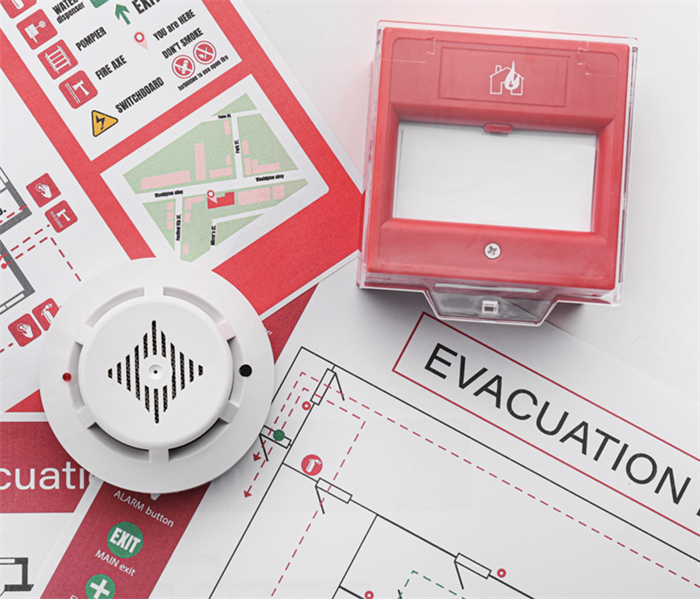Stop Fires Before They Start: Essential Tips for Fire Prevention
4/29/2023 (Permalink)
If you want to be sure that your home is safe, it's important to know the sources of fire hazards and how they can affect you. If you have any questions about what might be considered a potential hazard in your home, contact an electrician or other professional who can help assess the risks involved.
Developing an Evacuation Plan
Planning for an emergency is the first step in preventing it from happening. Your home should be equipped with a fire extinguisher, smoke detectors and carbon monoxide detectors. If you have small children or pets in your home, make sure that you have a plan for them as well.
Installing fire alarms
Fire alarms are important because they alert people when there is a fire so they can get out safely before it gets too big to handle on their own. They also give off warning sounds so that people know when there is danger nearby and need help immediately!
Maintaining smoke detectors
Smoke detectors should be replaced every 10 years or sooner if they stop working properly (such as making loud noises). You should also clean them regularly by vacuuming around them once per month; this will prevent dust buildup which could cause false alarms later down the road.
Inspect your home for fire hazards, such as frayed wires or worn insulation on electrical cords, loose screws on heaters and air conditioners that could cause arcing if they come into contact with something else (like a carpet), and space heaters that aren't vented properly.
Fire Extinguishers
If you have a fire extinguisher, it's important to know how to use it. There are several different types of extinguishers and each one works differently. You should familiarize yourself with the different types of fire extinguishers so that you can identify them in an emergency situation and know what type of fire they will be able to put out (e.g., Class A, B or C).
You should also practice using your fire extinguisher regularly so that when an actual emergency occurs, you will be able to act quickly without hesitation or confusion about how best to handle the situation at hand.
Fire Prevention in the Workplace
Your business should have a written fire safety plan that includes information about how to detect and extinguish small fires before they become larger ones, how to prevent electrical hazards, how you'll handle emergency evacuations, who will be responsible for fighting any type of blaze (for example, trained personnel) and what steps need to be taken if an employee has been injured by smoke inhalation or burns while working onsite.
Training Employees on Fire Safety
It's important for all employees--not just those who deal directly with flammable materials--to understand how best keep themselves out of harm's way when dealing with potential fire hazards like open flames or hot surfaces.
Understanding Regulations
If you're operating within certain industries such as manufacturing, construction or transportation (or any other industry where flammable materials are present), then it may fall under OSHA regulations regarding workplace safety standards including those related specifically toward preventing fires from starting up again after being extinguished once already extinguished.
Ensuring your home and business are safe in cause of a fire is essential to having a safe home and work environment. Have a fire evacuation plan in place to ensure your family and employees are safe.

 24/7 Emergency Service
24/7 Emergency Service
